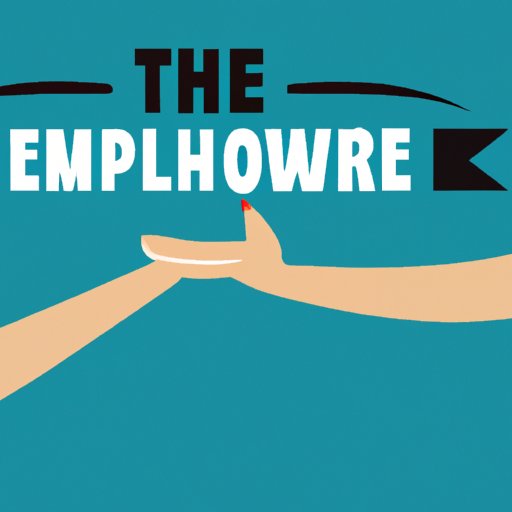Introduction
An effective leader is someone who can motivate and inspire others to achieve goals, create a positive working environment, and drive success. Becoming an effective leader requires dedication and a commitment to learning and growing in the role. With the right strategies, anyone can become an effective leader.
Develop Strong Communication Skills
One of the most important qualities of an effective leader is strong communication skills. This includes being an active listener, speaking with confidence and clarity, and having open communication with the team. Active listening involves giving people your full attention and responding thoughtfully to what they have to say. Speaking with confidence and clarity helps to ensure that your message is understood by everyone. Open communication encourages team members to share ideas and concerns without fear of judgement or criticism.
Encourage Collaboration and Cooperation
Leaders must also be able to foster collaboration and cooperation among team members. This means creating a positive working environment where everyone feels comfortable sharing ideas and working together. It also involves facilitating discussions among team members to ensure everyone’s voices are heard. Additionally, leaders should strive to build trust between team members so that they feel supported and motivated to work together.

Set a Good Example for Your Team
As a leader, it’s important to set a good example for your team. This means demonstrating a dedication to the task at hand, leading by example in terms of work ethic, and taking responsibility for mistakes. When team members see you taking the lead and putting in the effort, they will be more likely to follow suit.

Empower Others to Take Ownership of Their Work
It’s also important to empower others to take ownership of their work. This means encouraging creativity and innovation, providing support and resources when needed, and giving meaningful feedback. By doing this, you can help team members develop the necessary skills to take on more responsibility and become more independent.
Continuously Strive to Grow and Improve as a Leader
Finally, effective leaders must continuously strive to grow and improve in their role. This means staying up to date on industry trends and best practices, identifying areas of improvement and developing plans to address them, and seeking out mentors and mentorships. Learning from others and reflecting on your own performance can help you become a better leader and achieve greater success.
Conclusion
Becoming an effective leader requires dedication and a commitment to learning and growing in the role. To become an effective leader, you must develop strong communication skills, encourage collaboration and cooperation, set a good example for your team, empower others to take ownership of their work, and continuously strive to grow and improve as a leader. With the right strategies, anyone can become an effective leader.
(Note: Is this article not meeting your expectations? Do you have knowledge or insights to share? Unlock new opportunities and expand your reach by joining our authors team. Click Registration to join us and share your expertise with our readers.)
